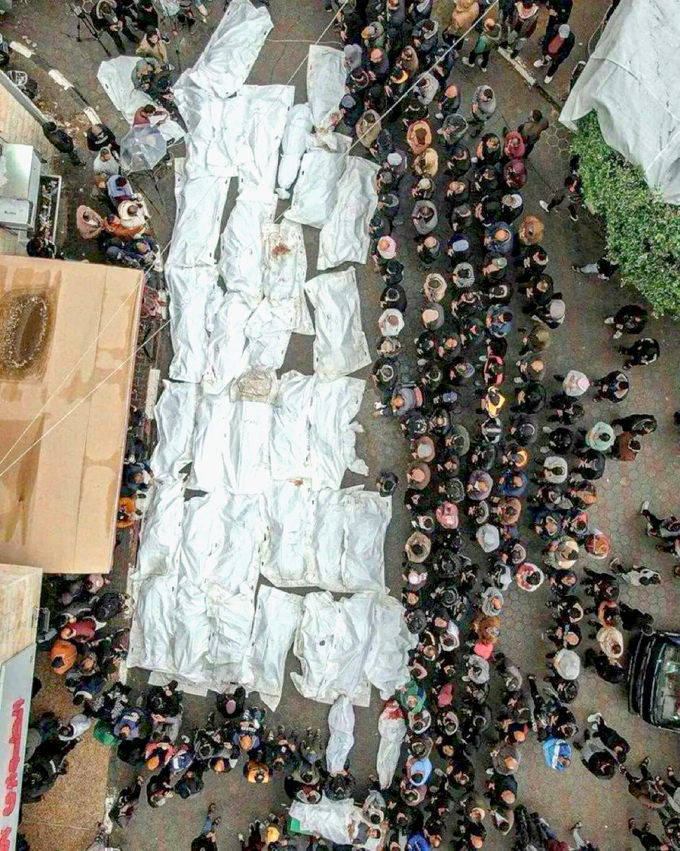ISRAELI air attacks targeted displaced Palestinians in tent camps in al-Mawasi refugee camp in western Rafah again yesterday, killing 21, including 13 women and a number of children.
It followed Sunday night’s massacre of 45 mainly women and children in a Rafah tent camp.
The Israeli attacks occurred in a designated humanitarian zone where residents frantically attended to the bloodied victims and covered the bodies of those killed with blankets.
One rescuer on the scene said: ‘Since the early hours of the morning, when people began to return, Israeli forces have been targeting them.
‘We have recovered a number of bodies. We, the paramedics and ambulance crews, are also targeted by armed drones.
‘Minutes ago, artillery shells fell in the area, killing more people.’
Israeli tanks pushed deeper into Rafah from two major axes – along the Philadelphi Corridor into the city centre, and from the eastern part of Rafah city all the way down to an area known as the al-Awda traffic circle.
Residents said Tal as-Sultan in western Rafah, the scene of Sunday’s deadly strike that killed about 45 people, was still being heavily bombarded.
‘Tank shells are falling everywhere in (Tal as-Sultan). Many families have fled their houses in western Rafah under fire throughout the night,’ a resident said.
Israeli jets also targeted al-Faluja area, west of Jabalia camp, killing and injuring a number of civilians who had just started to return to the area after Israeli forces withdrew.
At least 36,096 Palestinians have been killed and 81,136 wounded in Israeli attacks on Gaza since October 7, its Health Ministry reported yesterday.
The ministry added that 46 people were killed and 110 injured in the latest 24-hour reporting period.
- Elbit Systems, one of Israel’s biggest defence contractors, operating in the UK, has posted an 11.5 per cent increase in first-quarter revenue year-on-year as Israel’s military demands more products for its war on Gaza.
Elbit supplies weapons and equipment to Israel’s Defence Ministry, including simulators, drones, artillery, munitions and high-powered lasers, CEO Bezhalel Machlis said.
In addition to increased profits from Israel’s Defence Ministry, the fact that Elbit’s systems are ‘in operational use’ in Israel is driving demand from international customers, Machlis said. Consequently, the company expects to reach its revenue goals earlier than anticipated, he said.
• See editorial
